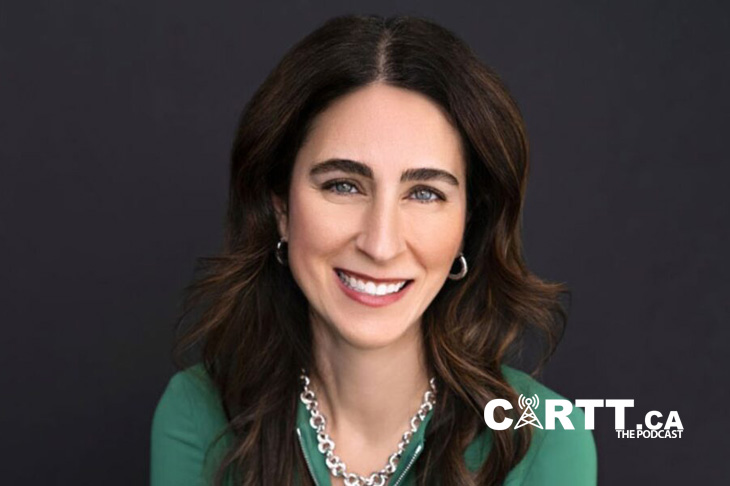By Christopher Guly
OTTAWA – While the use of artificial intelligence (AI) in film and television is dominating headlines, the technology is “not the villain in the story,” Hollywood-based film and television industry veteran and current AI and media-tech investor Seth Hallen told an audience of AI enthusiasts in the media-production sector at the 30th installment of the Canadian Media Producers Association’s (CMPA’s) annual Prime Time conference in Ottawa on Thursday.
He said that “AI is just the latest in a long line of technological advancements that at first were met with great fear, but ultimately led to growth,” such as the introduction of sound and colour, and more recently, digital editing and computer-generated imagery, or CGI.
“Each of these advancements expanded creativity and made storytelling even more powerful,” said Hallen, past president of the Hollywood Professional Association.
“AI is no different.”
“It just arrived at the worst possible time right in the middle of an existing economic crisis.”
He explained that the “root cause” of the “real disruption” facing the film and TV industry is “the economic upheaval caused by streaming and the explosion of free video content on social platforms delivered from companies that built their businesses entirely around AI-driven content discovery.”
“Tens of billions in ad revenue per year that used to flow into traditional media has not gone to these platforms instead,” said Hallen.
He said contrary to fears within the industry, AI is not taking jobs but creating them.
“AI isn’t replacing human creativity. It’s just reshaping,” said Hallen, who believes the technology can “also help us solve the revenue problem.”
“AI can analyze audience trends to help pitch projects with real market demand,” he explained, “and help investors to fund projects with the highest ROI [return on investment].”
The monetization of AI can also “unlock new revenue streams beyond traditional licensing” for creators, added Hallen, who is a member of the Academy of Television Arts and Sciences’ AI Task Force.
“Most importantly, AI-powered rights tracking can ensure creators get paid fairly, giving them more control over their work and their future,” he said, noting that studios, streaming platforms and independent creators need to collaborate on AI policies.
Gave Lindo spoke to Prime Time delegates about AI’s monetization aspect.
He serves as chief content officer of Troveo, a platform launched last year that helps content owners, including creators, filmmakers and production companies, license their work to AI companies while retaining their ownership rights.
The Los Angeles-based startup will accept video content with a resolution of 1080p and higher for AI companies hungry for “real-world content for their software to learn from,” according to Troveo.
Content is “anonymized and never used beyond training purposes” and is therefore not “reproduced, cloned or recreated” nor will exhibition rights apply for the content, Lindo explained.
He said that the content is also broken into clips and organized thematically, such as people driving cars.
Creators can earn more than US$1 million by sharing 3,000 hours of private or unreleased footage.
However, Adam Rumanek, founder and chief executive officer of Aux Mode, which specializes in digital-rights management, intellectual property protection, and monetization on YouTube and other streaming platforms, provided the Prime-Time audience with a sober reality.
“All of the stuff you’ve created has already been taken” by major platforms, such as Facebook, he said is using user content to train its AI models.
Nevertheless Lindo, who previously served as the head of content programming for North America at TikTok, said that AI will not only accelerate the distribution of content, but its creation as well, by freeing the various trades involved in production “to do other things.”
AI will save time, as Hallen added.
Rather than spending time Google searching images for wardrobe selection, costume designers can use AI to come up with different looks more quickly.
However, he underscored that “AI can’t do anything on its own.”
“It will only be as good as the human using it,” said Hallen.
He said that the media-production sector is faced with a “moment to change the narrative.”
“AI isn’t the enemy. It’s just a tool,” said Hallen.
“The real threat isn’t technology. It’s resisting innovation.”
Screenshot of Seth Hallen at the 2024 International Broadcasting Convention, via his website
Cartt.ca - Contributor
-
Ahmad is an entrepreneurial, scoop-hungry, nose-to-the-grindstone former Parliamentary press gallery reporter with a passion for unearthing new information and breaking news.
Editor+Chief Reporter



